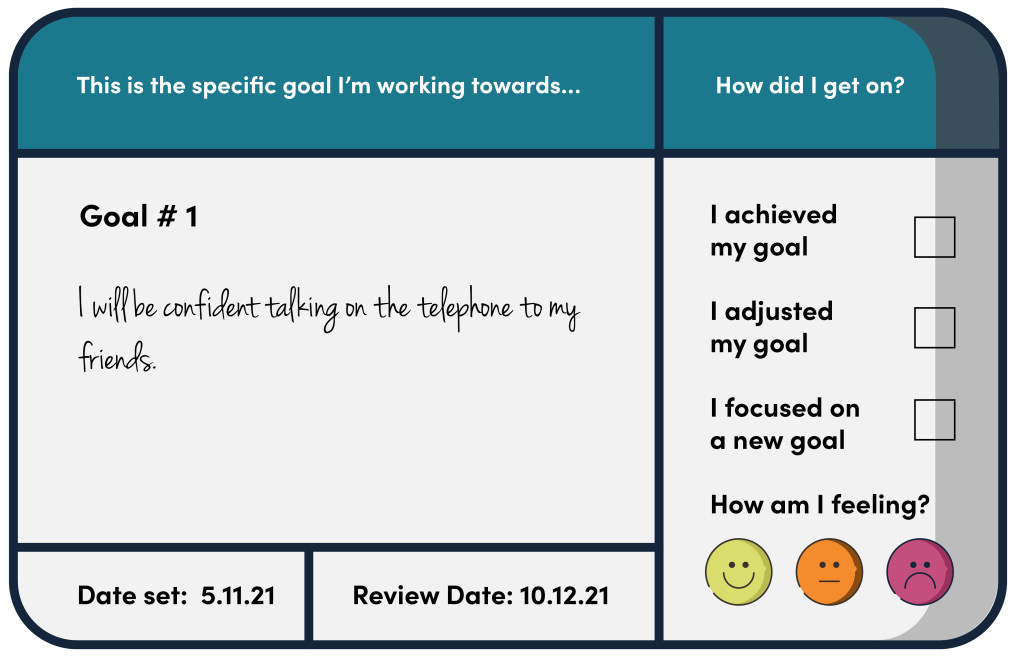Goal Setting
What?
The staff member and person agree specific goal(s) to work towards.
G-AP goals should be:
- Agreed between person and the staff member
- Described in person’s own words
- Be specific enough to (i) focus the efforts of the person and the staff working with them and (ii) allow them to judge whether it has been achieved or not
- Perceived as the ‘just right challenge’ by the person
- Be tailored to their social and/ or environmental situation
- Be important and motivating to them – “what’s in it for me?”
How?
Building on the goal negotiation phase, staff support the person to think about a specific goal(s) they would like to achieve.
It may be helpful to have short term goals which lead towards a more complex long term goal if the person finds it helpful and motivating.
Questions like this may facilitate this stage …
- “Think about what you would like to be able to achieve by ……. (Future date)”
- “What sort of things did you enjoy doing prior to having the stroke (or other health condition)?”
- “Think of something very specific to do with that (e.g. cooking) you would like to achieve.”
- “You have said getting out and about is important to you; what sort of things do you like to do outdoors?”
- “You said you would like to be able to walk much further; can you think of a place you would like to walk to?
Whilst we want to support people to come up with their own goals, some struggle with this or can feel overwhelmed. Giving people examples of potential goals to consider can be helpful.
Some people may actually prefer it and find it reassuring if staff come up with the goal – that’s OK. It doesn’t matter who comes up with the goal or if it’s a combined effort. The important thing is that both agree on it.
Why?
The purpose of a goal is to motivate and focus the person and staff member’s efforts.
Goals should create clear bench marks for people and staff to work towards and judge progress against.
Outcome of this stage
The person and the staff working with them agree specific goal(s) to work towards. For example:
- “I will be confident talking on the telephone to my friends”
- “I will be able to sign my name using my right hand”
- “I will be able to take the dog for a walk to the local park on my own”
- “I will be confident I can manage my anxiety on a day to day basis”
- “I will find out if it’s possible for me to get back to work”
- “I will get through the day and remember all the important things I have to do”
- “I will feel OK about letting my family know when I do and don’t need help”
- “I will feel reconnected with my brother and see him every week”
Documentation in G-AP record

